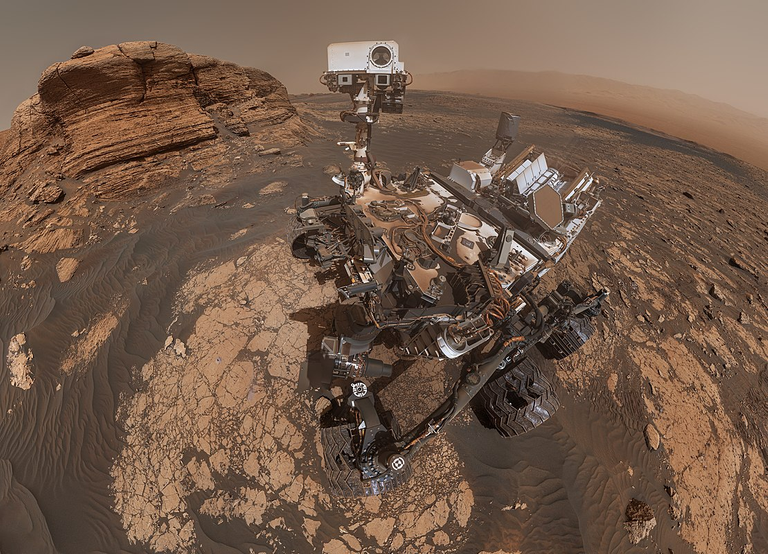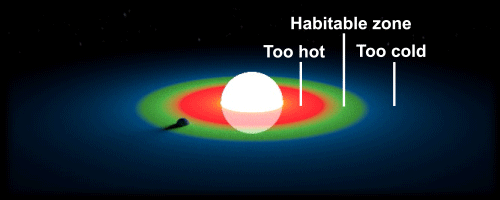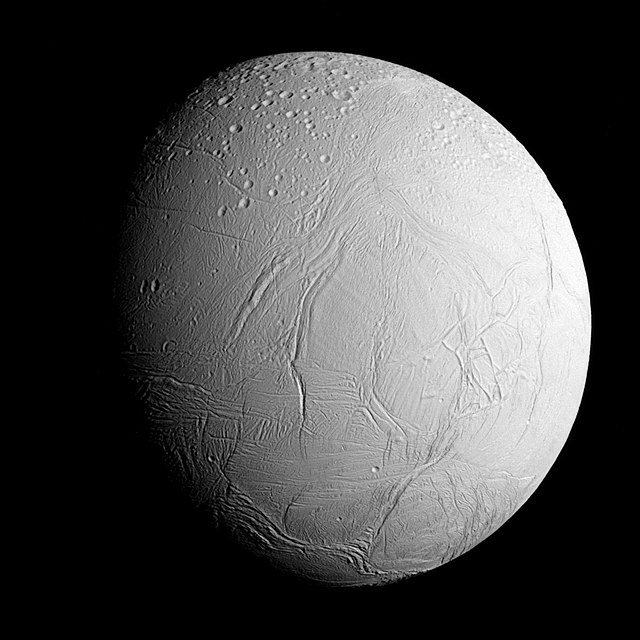From Mars to Exoplanets: The Fascinating Journey in Search of Alien Life

When you look up at the stars, do you ever wonder whether humans are the only intelligent life in the universe? For hundreds of years, the idea of sentient life existing somewhere other than Earth has fascinated humans, inspiring countless works of science fiction and a sincere desire to learn more. However, this interest goes much beyond idle curiosity; rather, it is a serious scientific undertaking that has been gaining steam over the past few decades. Scientists and researchers are always pushing the frontiers of our knowledge in the pursuit of answers, and this is true at every level of space exploration, from the examination of celestial bodies inside our solar system to the finding of exoplanets in distant star systems.
An Overview and Its Importance
Whether or not we find life beyond Earth is a basic topic with far-reaching consequences for how we view ourselves, the world, and everything in it. The search for extraterrestrial life has the potential to radically alter our understanding of biology, evolution, and the fundamental essence of living things on Earth. In addition, finding life beyond Earth, even in its most primitive form, would indicate that life is not exclusive to Earth but rather a cosmic phenomenon that may be dispersed throughout the vastness of the cosmos. It's a mission that has captivated scientists, piqued the interest of the general public, and inspired substantial investments in exploration and study.
This article explores the current initiatives and recent developments in the hunt for alien life. The implications of finding life beyond Earth, from the historical context that sparked our curiosity to the technological advances that have propelled our exploration, are discussed as we delve into the multidisciplinary field of astrobiology, examine the exploration of our solar system and exoplanets, search for extraterrestrial intelligence, and more. By exploring these ideas, we hope to highlight the relevance of humanity's never-ending search for solutions.
Research on the Possible Existence of Life Beyond Earth
People have been interested in the chance of life on other planets for hundreds of years, and this interest is tied to ancient beliefs, mythology, and early scientific findings. In the religious and cultural stories of old societies, the idea of gods and beings from other planets was a central part. However, recent times saw the start of a methodical scientific investigation of the area.
Visionaries like Johannes Kepler and Giordano Bruno, who lived throughout the 17th and 18th centuries, were among the first to postulate the concept of other inhabited worlds and speculate on the possibility of sentient creatures on other planets. However, technological advances in the 20th century allowed us to begin a systematic search for extraterrestrial life.
Scientists like Frank Drake and Carl Sagan, who in the middle of the 20th century developed the Drake Equation and began the hunt for extraterrestrial intelligence (SETI), can be credited with laying the groundwork for contemporary astrobiology. These trailblazers paved the way for future researchers to explore the potential of life beyond Earth.
The Basic Requirements of Life
There are necessary and sufficient circumstances for life as we know it to flourish. These circumstances provide the components and environmental factors necessary for the emergence and maintenance of life. Exploring the needs for life as we know them is important for leading our search for life on other planets and finding places that might be able to support life.
One important idea in astrobiology is the "habitable zone," which is also called the "Goldilocks zone."

Source
The term "habitable zone" is used to describe the area in a star's habitable zone where liquid water may exist on a planet's surface. Water is a key part of life as we know it because it dissolves things and takes part in many biological processes. Other factors, including atmospheric composition, the existence of organic molecules, and energy sources, also play crucial roles in defining the possibility of life.
Scientists have been looking at various objects in our solar system for signs of life or information on the circumstances essential for life. Let's learn more about these exciting worlds and the expeditions that aim to discover them.
The Quest for Life in the Solar System
Mars: Due to its parallels to Earth and its potential as a once- or currently-habitable environment, Mars has attracted a lot of attention. Viking missions from the 1970s and more modern rovers like Spirit, Opportunity, and Curiosity have all been sent to Mars. The information gathered by these probes on the Martian atmosphere, geology, and possibility of old liquid water is invaluable. Future missions like NASA's Mars 2020 rover will continue the hunt for traces of microbial life, both extinct and present, by collecting samples to bring back to Earth at a later date.
Europa: One of Jupiter's moons, Europa, has fascinated researchers because it is thought to harbor an ocean of liquid water under its icy surface. It is believed that beneath its frozen surface there is a warm ocean due to the tidal forces produced by Jupiter's gravity. Scientists have speculated about the likelihood of life on Europa due to the presence of hydrothermal vents and a rather stable climate. In order to determine if Europa is habitable and whether or not life may exist there, NASA's planned Europa Clipper mission will undertake in-depth surface and subsurface explorations.
Enceladus: Enceladus, a moon of Saturn, has been sending up plumes of water vapor and organic compounds through geysers, much to the amazement of astronomers.

Wikipedia
These plumes provide a tempting chance to investigate the ocean floor without launching elaborate drilling efforts. Multiple near flybys by NASA's Cassini mission, which orbited Saturn from 2004 to 2017, allowed for the analysis of the plumes and confirmation of the existence of organic compounds and hydrothermal activity on Enceladus. These discoveries have increased the likelihood that Enceladus might contain microorganisms.
Titan: Titan, Saturn's biggest moon, has a thick atmosphere with lakes and rivers like those on early Earth. Although they may look like lakes of water, these liquids are really liquid hydrocarbons like methane and ethane. The Cassini expedition made the complex chemistry and organically rich environment of Titan known. NASA's Dragonfly is one example of an upcoming project that plans to send a rotorcraft to Titan in order to study the moon's varied topography, search for signs of prebiotic chemistry, and look for signs of microbial life.
The Importance of Astrobiology and New Technologies
The search for alien life relies heavily on the interdisciplinary subject of astrobiology. Integrating astronomy, biology, chemistry, geology, and planetary science, this field investigates how and where life began throughout the cosmos. Astrobiologists combine the study of Earth and space biology with the search for extraterrestrial life in order to better understand the circumstances required for life.
Our capacity for space travel and the quest for alien civilizations has been greatly bolstered by technological development in recent decades. The finding and characterization of exoplanets has changed our knowledge of the universe, made possible by the advent of advanced ground-based and space-based observatories. The identification of thousands of exoplanets by telescopes like the Kepler Space Telescope and the Transiting Exoplanet Survey Satellite (TESS) has increased the number of potentially habitable worlds.
Advanced sensors and rovers on space missions make it possible to examine planets, moons, and asteroids up close. The habitability of Mars and the possibility of past or present life have been investigated by missions such as the Mars rovers (Spirit, Opportunity, and Curiosity) and the forthcoming Mars 2020 rover. Rosetta, a comet-landing mission conducted by the European Space Agency (ESA), yielded important insights about the origins of life.
The discipline has also been radically altered by the introduction of cutting-edge detection methods. Scientists may now look for chemical and atmospheric indications of life thanks to the development of biosignature detection tools, including spectroscopy and biomarker analysis. In addition, recent breakthroughs in DNA sequencing technology have made the detection and analysis of microbial life in Earth's most severe settings possible, shedding light on the possibility of life in equally harsh circumstances elsewhere in the cosmos.
The Effects and Significance of Finding Life on Other Planets
Finding life beyond Earth would change everything we know about biology, evolution, and the universe as a whole. If this were to be the case, it would show that life is not something unique to Earth but rather an inevitable result of the circumstances everywhere else in the cosmos. This information would significantly alter our understanding of the history of life on Earth, its variety, and the uniqueness of our planet.
Finding life beyond Earth would prompt deep philosophical reflection on the nature of reality and the significance of human existence. It would drive us to question our faiths and consider the possibility that life exists in forms we have yet to discover. The implications of this finding for our understanding of life, awareness, and our place in the cosmos would open up new avenues of philosophical and existential inquiry.
The discovery of alien life might have profound implications for human society. It has the potential to pique the public's curiosity about space travel and encourage the next generation of scientists and engineers. The search for evidence of alien life has the potential to unite nations in a common cause that goes beyond national boundaries and geopolitical tensions.
The finding of alien life would pose serious questions about our cultural beliefs, mythologies, and forms of creative expression. It would enrich the human experience by providing novel ideas for stories, songs, paintings, and films. It would have far-reaching effects on how we view the cosmos and ourselves in it, as well as on popular culture.
In conclusion, the search for life on other planets shows how curious people are and how much they want to learn about the unknown. Astrobiology is an interdisciplinary science that uses advances in technology to study habitability and look for indicators of alien life. The effects of finding life on other planets go beyond scientific understanding and include philosophical, social, and cultural issues. Space exploration is an exciting pursuit that challenges our intellect and helps us appreciate how small we are in comparison to the universe. Let us, then, while we go on our search, be at peace with the unknowable and open to the vast possibilities that lie ahead.
References
- Finding Life Beyond Earth is Within Reach. (n.d.). NASA. http://www.nasa.gov/content/finding-life-beyond-earth-is-within-reach
- Why We Search | The Search For Life – Exoplanet Exploration: Planets Beyond our Solar System. (n.d.). Exoplanet Exploration: Planets Beyond Our Solar System. https://exoplanets.nasa.gov/search-for-life/why-we-search
- N. (2019, March 6). Life probably exists beyond Earth. So how do we find it? Life Probably Exists Beyond Earth. So How Do We Find It? | National Geographic. https://www.nationalgeographic.co.uk/2019/03/life-probably-exists-beyond-earth-so-how-do-we-find-it
- https://cen.acs.org/physical-chemistry/astrochemistry/What-are-chemical-signs-of-life-beyond-Earth/98/i46. (n.d.). https://cen.acs.org/physical-chemistry/astrochemistry/What-are-chemical-signs-of-life-beyond-Earth/98/i46
- Coustenis, A., & Encrenaz, T. (2013, October 1). Life beyond Earth. Cambridge Core. https://doi.org/10.1017/CBO9781139206921
- The search for life beyond Earth. (n.d.). The Search for Life Beyond Earth. https://phys.org/news/2021-02-life-earth-1.html
- N. (2019, March 6). Life probably exists beyond Earth. So how do we find it? Life Probably Exists Beyond Earth. So How Do We Find It? | National Geographic. https://www.nationalgeographic.co.uk/2019/03/life-probably-exists-beyond-earth-so-how-do-we-find-it
- Chemical studies on the possible existence of life on Mars. (1999, September 22). Chemical Studies on the Possible Existence of Life on Mars - ScienceDirect. https://doi.org/10.1016/S0273-1177(99)80081-7


Thanks for your contribution to the STEMsocial community. Feel free to join us on discord to get to know the rest of us!
Please consider delegating to the @stemsocial account (85% of the curation rewards are returned).
You may also include @stemsocial as a beneficiary of the rewards of this post to get a stronger support.